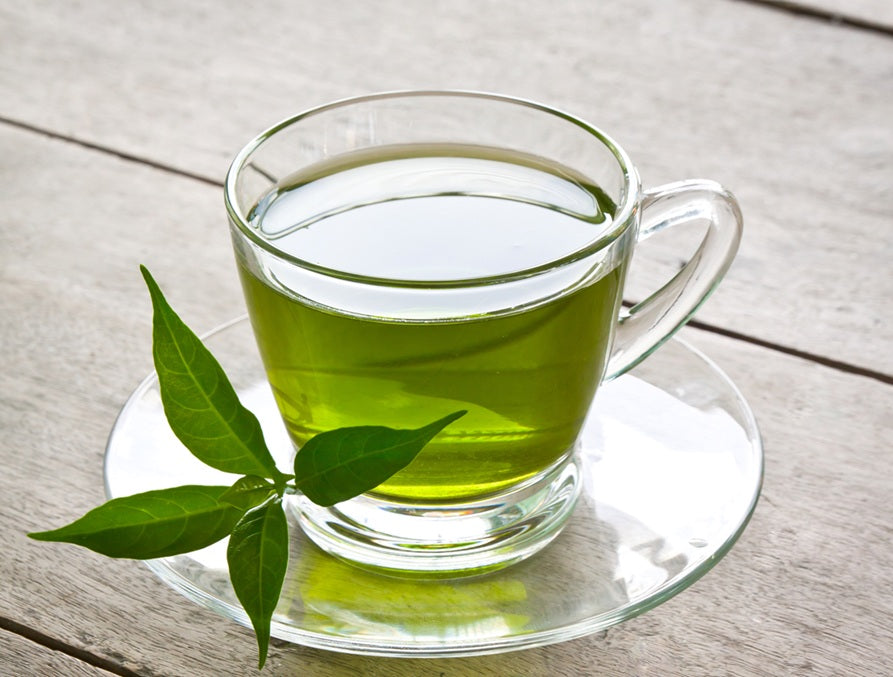
The Ultimate Guide to Green Tea
Green tea has long been celebrated as one of the healthiest beverages in the world. Packed with antioxidants and bioactive compounds, it offers a range of benefits for beauty, anti-aging, skin health, and overall wellness. In this comprehensive guide, we’ll explore the top 10 evidence-based benefits of green tea, its role in skin whitening and anti-aging, safety precautions, and alternative treatments. We’ll also provide insights from multiple sources to give you a well-rounded understanding of this powerful drink.
Why Green Tea is a Beauty and Health Powerhouse
Green tea, derived from the leaves of Camellia sinensis, is rich in polyphenols, catechins, and other bioactive compounds. Its benefits extend beyond hydration, offering support for skin health, weight management, cognitive function, and even disease prevention. Whether you’re looking to enhance your beauty routine, slow down aging, or improve your overall health, green tea is a versatile and natural solution.
1. Rich in Antioxidants for Skin and Health
Green tea is a potent source of antioxidants, particularly epigallocatechin-3-gallate (EGCG). These antioxidants combat free radicals, which cause oxidative stress and damage to skin cells. This not only helps in preventing premature aging but also supports overall health by reducing inflammation.
- Beauty Benefits: Antioxidants in green tea can improve skin texture, reduce redness, and protect against UV damage.
- Research Evidence: Studies have shown that EGCG can rejuvenate dying skin cells, making it a popular ingredient in anti-aging skincare products.
2. Promotes Skin Whitening and Brightening
Green tea contains compounds that can reduce melanin production, helping to lighten dark spots and even out skin tone. Its anti-inflammatory properties also soothe irritated skin, making it ideal for sensitive skin types.
- Key Ingredient: EGCG and Vitamin C in green tea work synergistically to brighten the skin.
- Product Example: Look for serums or creams with green tea extract and niacinamide for enhanced whitening effects.
3. Anti-Aging Properties
The catechins in green tea protect collagen, the protein responsible for skin elasticity and firmness. By reducing collagen breakdown, green tea helps maintain youthful, plump skin.
- Clinical Evidence: A 2020 study found that green tea extract reduced wrinkles and improved skin hydration over 12 weeks
- DIY Tip: Use green tea-infused face masks to hydrate and tighten the skin naturally.
4. Supports Weight Management
Green tea boosts metabolism and enhances fat oxidation, making it a popular choice for weight loss. Combined with exercise, it can help reduce abdominal fat.
- Scientific Findings: A 2022 review found that drinking green tea alongside aerobic exercise significantly improved fat-burning (Source:
- Caution: Green tea supplements should be used carefully, as excessive doses may cause liver damage.
5. Improves Cognitive Function
Green tea contains caffeine and L-theanine, which work together to improve focus, mood, and brain function. Regular consumption may also lower the risk of neurodegenerative diseases like Alzheimer’s.
- Study Highlight: A 2020 study linked green tea consumption with a 64% lower risk of cognitive decline in older adults.
6. Reduces Risk of Certain Cancers
The antioxidants in green tea may reduce the risk of cancers such as breast, ovarian, and lung cancer by neutralizing harmful free radicals.
- Research Evidence: A 2020 review found modest benefits in reducing cancer risk, though more studies are needed (Source: [PubMed](https://pubmed.ncbi.nlm.nih.gov)).
7. Enhances Oral Health
Green tea’s antibacterial properties can reduce plaque formation and improve gum health. It’s also effective in combating bad breath.
- Tip: Use green tea as a natural mouthwash for fresher breath and healthier gums.
8. Regulates Blood Sugar Levels
Green tea may help manage blood sugar levels, making it beneficial for people with type 2 diabetes.
- Clinical Findings: A 2021 study found that daily green tea consumption reduced the risk of diabetes-related complications by 10%.
9. Protects Heart Health
Green tea can lower blood pressure and cholesterol levels, reducing the risk of heart disease.
- Study Insight: Drinking five or more cups of green tea daily was linked to a lower risk of cardiovascular mortality.
10. Promotes Longevity
Regular green tea consumption has been associated with a longer lifespan, thanks to its protective effects against chronic diseases.
- Japanese Study: Those who drank five cups or more per day had a significantly lower risk of death from all causes.
Safety Precautions
- Caffeine Sensitivity: Green tea contains caffeine, so limit intake to 3-5 cups per day to avoid insomnia or jitteriness.
- Liver Health: High doses of green tea extract supplements may harm the liver. Always consult a healthcare provider before starting supplements.
- Pregnancy: Pregnant women should limit green tea intake due to its caffeine content.
Alternative Treatments
If green tea isn’t your preference, consider these alternatives:
- White Tea: Contains similar antioxidants but with a milder flavor.
- Matcha: A powdered form of green tea with higher concentrations of nutrients.
- Herbal Teas: Chamomile or rooibos can offer calming and antioxidant benefits without caffeine.
Conclusion
Green tea is a versatile and natural way to enhance your beauty routine, support anti-aging, and improve overall health. Whether you drink it or apply it topically, its benefits are backed by science and centuries of use. Start incorporating green tea into your daily routine to unlock its full potential for your skin, body, and mind.
By combining modern research with ancient wisdom, green tea remains a timeless solution for beauty, anti-aging, and health. Cheers to your wellness journey.
Sources:
1. Healthline: 10 Evidence-Based Benefits of Green Tea
2. NIH: Green Tea and Health
3. PubMed: Green Tea and Skin Health